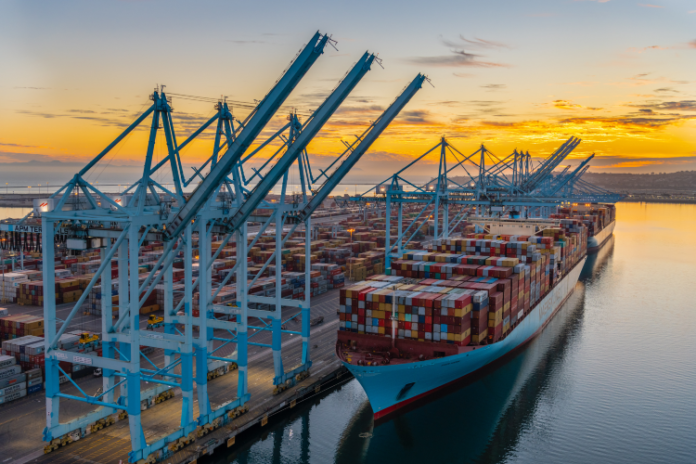Danish shipping line A.P. Moller-Maersk has lined up WasteFuel as a supplier of green energy to fuel some of its newer container ships. It could step up that supply agreement to buy even more biofuel from WasteFuel, a Maersk spokesman said.
Maersk, which consumes about 12 million tons of marine oil annually, previously announced plans to go completely green with its fuels by 2050, the spokesman said.
Maersk made the investment in WasteFuel as it looks for technologies to decarbonize its fleet. WasteFuel converts trash into green bio-methanol, sustainable aviation fuel and renewable natural gas. It also is working to produce methanol derived from agricultural waste. The biofuel deal would initially supply green energy to state-of-the-art container vessels under construction by Maersk.
In August, Maersk announced it was ordering eight large, ocean-going vessels able to run on what it called “carbon neutral methanol.” According to the shipping giant, the vessels will be built by South Korea-based Hyundai Heavy Industries for $1.4 billion with the capacity to carry about 16,000 containers. “We’ll be providing fuel for those ships,” Trevor Neilson, WasteFuel co-founder, chairman and chief executive, said. “It’s a pretty big deal.”
Maersk is the second major investor in WasteFuel as the company stands on the cusp of lining up hundreds of millions of dollars to invest in biofuel projects around the globe, Neilson said.
WasteFuel is developing projects in Asia and the Americas, including a bio-refinery in Manila, Philippines, to produce low-carbon fuels. In February, the company announced an offtake agreement with Columbus, Ohio-based NetJets Inc.
NetJets, the world’s largest private jet company, is owned by Berkshire Hathaway Inc., the Omaha, Neb.-based conglomerate run by billionaire Warren Buffett.
Maersk expects the investment to help WasteFuel build bio-refineries, with the first fuel expected to be ready in 2024.

